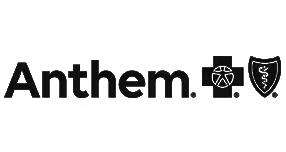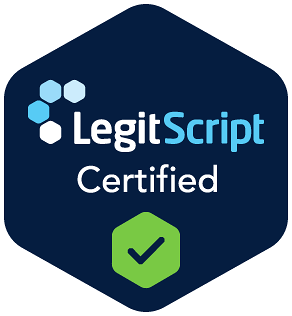When depression doesn’t respond to traditional treatments like SSRIs, there’s a new path forward.
This guide is a comprehensive, compassionate resource for understanding ketamine therapy and Spravato (esketamine) — two breakthrough treatments that are offering rapid, sustainable relief and a new path forward for young people with persistent depression. Lumin Health — an expert in Spravato and ketamine treatment — is here to answer your questions with clinical expertise and genuine care.
Insurance-covered Spravato (esketamine) treatment in Boston
Your questions about treatment resistant depression and ketamine therapy: answered
From years of struggle to hope, Lila finds relief from depression and anxiety through ketamine therapy at Lumin Health. Explore a compelling story of recovery through Spravato and esketamine treatment.
Frequently Asked Questions
Many adolescents and young adults do not respond to traditional antidepressants because their brains are still developing in ways that affect emotional regulation, making standard pharmacologic approaches less effective. Social and environmental pressures, along with barriers to quality, age-sensitive care, further limit treatment success. Depression in youth is often complex, intertwined with trauma, identity formation, and co-occurring conditions that medication alone may not address, and inconsistent adherence can compound these challenges. For those feeling stuck after ineffective treatments, it may be time to explore ketamine therapy as an alternative option.
Yes: when ketamine therapy is done with care, clarity, and clinical oversight, its safety profile is among the most favorable in psychiatric medicine, especially when used at therapeutic doses within a structured setting.
The ketamine safe dose range provides a strong foundation. But the real work of safety happens in how we prepare patients, how we stay present with them, and how we help them integrate what they’ve learned.
At Lumin Health, we believe that safety is not the absence of risk — it’s the presence of trust. And in the right hands, ketamine therapy can be not only safe, but profoundly transformative. We greatly encourage you to reach out to our team directly to discuss any specific concerns, as each individual case is complex and requires careful consideration.
Ketamine’s reputation as a recreational drug can cause understandable concern, but its risks look very different in a supervised medical setting. Recreational use — often involving high doses without safeguards — can lead to misuse, whereas clinical treatment uses carefully measured doses, limited frequency, and strict monitoring to minimize risk. Research shows no documented cases of treatment-related ketamine abuse in patients receiving supervised care for depression, and safety protocols like patient screening and in-clinic administration further protect young adults. With the right clinical oversight, ketamine therapy can be a safe and effective option for those seeking new paths to recovery.
While Spravato is FDA-approved only for adults 18 and older, and ketamine has no formal psychiatric approval for any age, clinicians sometimes consider these treatments off-label for patients as young as 16 when depression is severe, treatment-resistant, or accompanied by suicide risk. Age alone is not the deciding factor—doctors also assess developmental maturity, social support, mental health history, readiness for ketamine’s effects, and the ability to give informed consent. At Lumin Health, younger patients are considered only after a careful, collaborative evaluation and typically begin with a short, closely monitored course. If you’re under 18 and struggling with depression, we can help determine whether ketamine therapy is a safe and appropriate next step for you.
Yes — for many people, the change after ketamine therapy can be both real and rapid. Clinical studies and patient experiences consistently show that ketamine can ease symptoms of depression, sometimes within hours or days, even when years of traditional treatments have failed. Patients often describe a lifting of emotional heaviness, a renewed sense of perspective, and a greater ability to engage in therapy or daily life. While results vary and ongoing support is essential to maintain gains, the evidence is strong that ketamine can offer meaningful relief for those who’ve felt stuck in their depression.
Insurance coverage depends on the form of treatment. Spravato (esketamine) — the FDA-approved nasal spray for treatment-resistant depression — is often covered by insurances like the coverage you may have with your school or parents because it has a specific, recognized psychiatric indication. Coverage typically includes the medication, clinic administration, and monitoring, though patients may still have copays or deductibles. Ketamine in other forms — such as IV infusion, intramuscular injection, or oral lozenges — is used “off-label” for depression, meaning it’s not FDA-approved for that purpose. As a result, most insurers do not cover it, and treatment is usually paid for out of pocket. This difference is purely regulatory: the active drug in both Spravato and ketamine is chemically related, but only Spravato has undergone the approval process for psychiatric use. Some patients choose Spravato to access insurance benefits, while others prefer ketamine infusions for dosing flexibility or cost structure. At Lumin Health, we help people navigate both options so they can choose the path that best fits their clinical needs and financial circumstances.


































